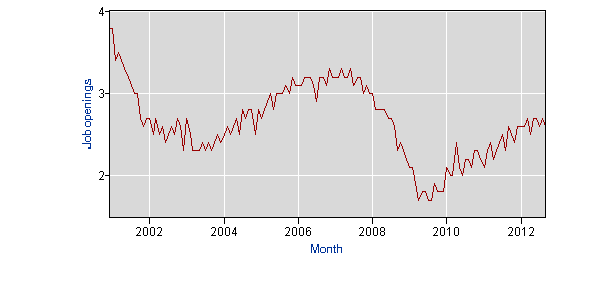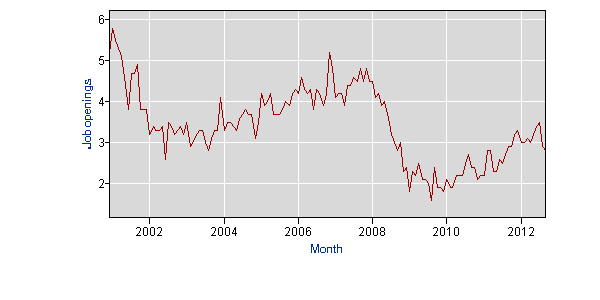Thomas Friedman Says That Our Economy Is Being Killed By Employers Who Can't Do Arithmetic:
The evidence presented in Thomas Friedman's column today would lead readers to believe that the economy's biggest problem is that companies are being run by executives who are so ignorant of economics that they don't know that the way to attract more workers is to raise wages. The column begins with the story of Traci Tapini, who with her sister is co-president of Wyoming Machince. For some reason Friedman assures us Tapini "is not your usual C.E.O."
According to Friedman, back in 2009, when the economy was collapsing and unemployment was soaring Tapini had to struggle to find 10 welders that she needed to meet an order from the military. She could not find workers with the right skills, which now includes not only the ability to make a good weld, but also a knowledge of metallurgy. Eventually she found a welder who had passed the American Welding Society Certified Welding Inspector exam and was able to train the other welders.
Friedman tells readers:
"Welding 'is a $20-an-hour job with health care, paid vacations and full benefits,' said Tapani, but 'you have to have science and math. I can’t think of any job in my sheet metal fabrication company where math is not important. If you work in a manufacturing facility, you use math every day; you need to compute angles and understand what happens to a piece of metal when it’s bent to a certain angle.'
Who knew? Welding is now a STEM job — that is, a job that requires knowledge of science, technology, engineering and math."
The obvious problem in this story is that Tapini apparently doesn't understand that you have to pay more money to get highly skilled workers. If the minimum wage had risen in step with inflation and productivity since the late sixties, it would be almost $20 an hour today. Back in the late sixties, a typical minimum wage worker would have a high school degree or less. Now, according to Friedman, we have CEOs who think that they can get highly skilled workers at the some productivity adjusted wage as someone who would have had limited literacy and numeracy skills 45 years ago. If we applied the same standard to doctors, they would be averaging around $100,000 a year today (instead of around $250,000). If employers really do have such poor understanding of how markets work then it will certainly be a serious impediment to economic growth in the years ahead.
Friedman continues:
"Employers across America will tell you similar stories [that they can't find workers with the right skills]. It’s one reason we have three million open jobs around the country but 8 percent unemployment."
If the argument is that employers don't understand how markets work Friedman might be right, but if the argument is that there is a skills mismatch, the evidence doesn't support his case. The overall ratio of job openings to positions has risen from the trough of the recession but is still well below its pre-recession level.
Ratio of Job Openings to Employment

Source: Bureau of Labor Statistics.
While Friedman argues that this means employers can't find workers with the right skills, it is worth noting that we see the same pattern in restauarant employment.
Ratio of Job Openings to Employment:
Accomodation and Food Service

Source: Bureau of Labor Statistics.
The current ratio of job openings to employment in the restauarant and hotel sectors is 2.8 percent (it had been 3.5 percent in the summer months). This is slightly higher than the 2.6 average for the economy as a whole. Unless we think that it is especially hard to find someone with the skills needed to work in a restaurant or hotel, then there must be some other explanation for the rise in the job openings ratio. For example, employers may be taking advantage of the fact that there are large numbers of unemployed workers to be more picky about who they hire.
The failure of wages to keep step with productivity growth would suggest that this is the case. While Friedman tells readers about the rise in the gap in the wages of workers with college degrees and workers without, this was mostly an 1980s story and to a lesser extent a 1990s story. There has been little change in this ratio in the current century. In fact, wages for workers with college degrees have been dropping since 2000.
The evidence suggests that if employers like Traci Tapini really can't find workers with the necessary skills it is primarily because they don't understand that it is necessary to raise wages to attract more skilled workers. If this is the case, we should hope that Ms. Tapini is not your usual C.E.O.
No comments:
Post a Comment